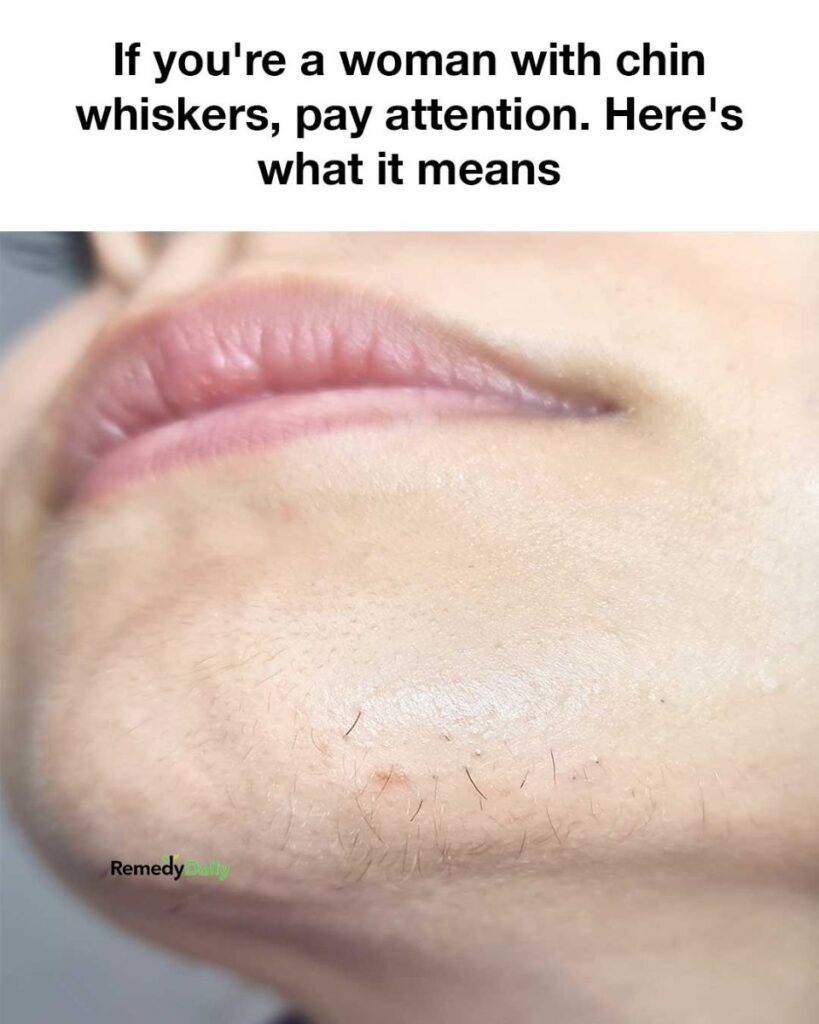
If you’re a woman and have noticed coarse hairs appearing on your chin, you’re not alone—and you shouldn’t ignore them. While occasional stray hairs are often harmless, persistent or excessive growth can be your body’s way of signaling something deeper going on internally.
Let’s break down what chin whiskers can mean and when it’s time to pay attention.
1. Hormonal Imbalances
One of the most common reasons women develop chin hairs is due to an imbalance in hormones—especially an increase in androgens, the group of “male” hormones like testosterone. When these hormones are slightly elevated, they can trigger hair growth in areas typically associated with men, including the chin and jawline.
Hormonal changes can happen due to:
Polycystic Ovary Syndrome (PCOS)
Menopause
Birth control changes
Thyroid dysfunction
✅ What to do: If you’ve noticed more hair growth along with irregular periods, acne, or weight gain, it’s a good idea to consult your doctor and get hormone levels tested.
2. Polycystic Ovary Syndrome (PCOS)
PCOS is a hormonal disorder affecting millions of women of reproductive age. One of its hallmark symptoms is hirsutism, or excessive hair growth on the face and body.
Other signs of PCOS may include:
2. Polycystic Ovary Syndrome (PCOS)
PCOS is a hormonal disorder affecting millions of women of reproductive age. One of its hallmark symptoms is hirsutism, or excessive hair growth on the face and body.
Other signs of PCOS may include:
Irregular or absent menstrual cycles
Fertility challenges
Oily skin and acne
Dark patches of skin (especially around the neck)
✅ Health tip: A proper diagnosis is important. Treatment options range from lifestyle changes and diet to medications that help balance hormones.
3. Genetics and Ethnicity
Sometimes, chin whiskers can simply be hereditary. Women from certain ethnic backgrounds, such as Mediterranean, South Asian, or Middle Eastern, may naturally have more facial and body hair due to genetic factors.
✅ Reminder: If your mom or grandmother had similar facial hair, it might just run in the family and not be a cause for concern.
4. Aging and Menopause
As estrogen levels decline with age—especially during menopause—your body’s balance shifts toward androgens. This can lead to new hair growth in places like the chin, while hair on the scalp may thin.
✅ Managing tip: Gentle hair removal options such as dermaplaning, tweezing, or natural treatments can help manage this safely at home.
5. Rare But Serious Conditions
In rare cases, chin whiskers could point to a condition involving the adrenal glands or ovaries, like adrenal hyperplasia or certain tumors that increase androgen production. These are not common but should be ruled out if hair growth is rapid and sudden.
✅ When to see a doctor: If chin hair growth is accompanied by deepening voice, muscle gain, or significant changes in your menstrual cycle, seek medical advice.
Final Thoughts
While one or two chin whiskers are usually nothing to worry about, persistent or sudden changes in facial hair growth could be a clue that something deeper is going on. Listen to your body—it might be time for a health check-up.
And remember: facial hair is natural, and many women deal with it. What matters most is knowing when to take action and care for your health from the inside out.